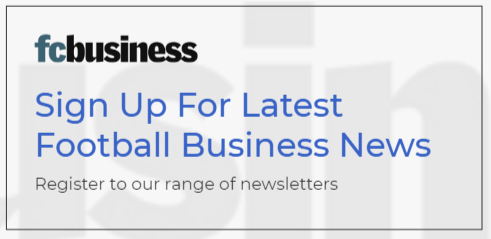An Overview Of The Biggest Sponsors Of The Bundesliga 2022-23
The Bundesliga is the premier football league in Germany – this is the league where German giants such as Bayern Munich and Borussia Dortmund play in. Last season saw Bayern win the league by 8 points, with Dortmund coming in at second place.
As with many football clubs, each team aims to have a sponsor. For example, it could be a renowned technology brand like Samsung, a casino that offers new slots online, a beverage brand like Redbull, or even some of the most famous car brands in the world. In the Bundesliga, one of the biggest football leagues in the world, we can see several of these – It’s a must nowadays, especially when at a professional level. Let’s look at some of the biggest sponsors in the league!
Volkswagen – VfL Wolfsburg
In some cases, the main sponsors of a club are also major stakeholders in the same club, as is the case with Wolfsburg and Volkswagen. The two have a very deep-rooted connection, with a subsidiary of the car manufacturer, Volkswagen AG of GmbH, owning a 100% stake in the club. The home stadium of VfL Wolfsburg is even called the Volkswagen Arena, which shows how embedded the company is into the club. Even before other sponsors are brought into the equation, Volkswagen provides an estimated 100 million euros to the club each year. Wolfsburg management will aim to invest this money wisely, more than ever this year in an attempt to improve on last season’s dismal performance, which saw them finish 13th in the standings.
Telekom – FC Bayern
The undisputed giants of German football, Bayern Munich, have had a long-standing relationship with German telecoms company Telekom, dating back over two decades. Towards the end of last season, the two signed an extension to that agreement which will see them partnered until the end of the 2026 season. Bayern is believed to receive €50 million per year from this new agreement, a €5 million increase from last season. Fans will be hoping Bayern can extend their run of consecutive Bundesliga titles to 11 next season, having won the title every year since the 2012/13 season.
1&1 and Evonik – Borussia Dortmund
Dortmund has bucked the trend in the Bundesliga regarding shirt sponsors, having two companies split the responsibilities. The 1&1 Ionos logo will be displayed on their shirts for all Bundesliga games, whereas the Evonik logo will be displayed for all DFB Pokal and Champions League games. The combined revenue from these sponsors is believed to be €40 million, double what they received when they just had the Evonik sponsorship. The dual logos gives Dortmund twice as many shirts to sell, potentially seeing an increase in revenue as they look to finally overthrow Bayern at the top of the league after finishing 2nd last year. Both sponsorship deals are set to end in 2025.
Red Bull – RB Leipzig
For those who aren’t as familiar with football, the “RB” in RB Leipzig stands for Red Bull, as Leipzig is one of several teams owned by the Red Bull brand. The soft drinks company founded the club in 2009, starting in the NOFV Oberliga Sud, the fifth division of German football. It took them less than ten years to make their way to the Bundesliga, and they’ve since twice finished runners-up behind Bayern. It’s estimated that the sponsorship officially brings in €35 million a year, though as owners of the club, we’re sure that Red Bull provides significantly more money than that.
Mercedes-Benz-Bank – VfB Stuttgart
VfB Stuttgart is in the final year of its sponsorship deal with Mercedes Benz Bank, and there are rumours that the German car manufacturer is thinking of withdrawing at the end of this deal. Stuttgart has been through a tumultuous time on the pitch, only gaining promotion back to the Bundesliga in the 20/21 season and narrowly avoiding another relegation last season. The sponsorship currently brings in €10 million in annual revenue for the club, something it desperately needs if it wants to rebuild and make its way back to being a mid-table team.
Flatex – Borussia M’Gladbach
Another team that had its current sponsorship deal end at the end of the season was Borussia M’Gladbach. However, they’ve recently signed an extension that takes them through to the end of the 2027 season. The original deal was signed in July 2020, and this extension will see them be shirt sponsors until at least 2024, with a co-sponsorship agreement locked in place until 2027. The deal is estimated to be worth €10 million per year, which fans hope, along with the Champions League money they’ll receive for finishing 4th last year, will be reinvested to challenge Bayern for the title in the upcoming 2022/23 season.
Conclusion
The focus of football clubs has been shifting towards big sponsorship deals for a long time, with most club owners worrying more about the deals they can make than the on-field performances, although the better the deals, the more money is invested and the more likely it is for clubs to build strong teams. This trend is not one that is expected to slow down any time soon, so expect more and more clubs to have sponsorships in the tens of millions in the coming seasons.





